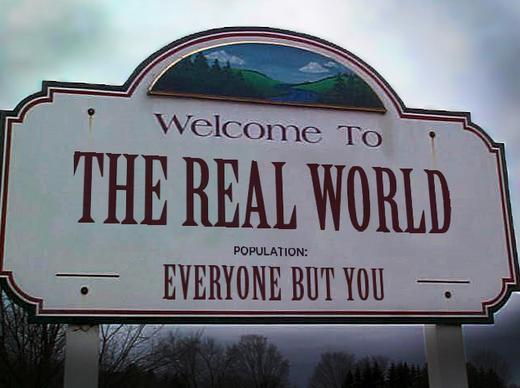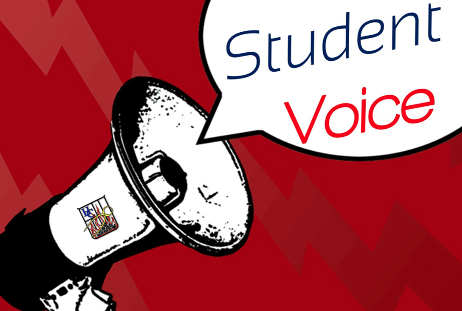We hear a lot about change. We hear a lot about innovation. We hear a lot about mindset. So, what do schools, school districts and educational organizations truly need to do to move forward? Here are few starters:
Really Live in the Real World - education loves to say ‘real world,’ but has a hard time doing this. We need to look at what leaders, innovators and change agents do in business, science, politics and other entities do to facilitate and really lead? We can do this by reading the books and publications they do, connect with them on social media, attend their professional gatherings and more. Educators, more than any other group, should be spending time and having discussions with those from other walks of life. What works outside should work inside. Traditionally, our schools have been artificial worlds that we created. The time has come to end this disconnect.
 Model - again we love to say this. How can we really walk the walk? Easy, decide to do it and do it often. If we are asking people to write, read, reflect, integrate technology, connect to the real world, take risks, etc, then we need to do all of it as well. And others have to see us doing it. We need to make it part of our daily work and daily conversation. For far too long, we have been a little like the parent who once said, “Act as I say, not as I do.” We don’t have to be perfect all we do, but we have to be doing it.
Model - again we love to say this. How can we really walk the walk? Easy, decide to do it and do it often. If we are asking people to write, read, reflect, integrate technology, connect to the real world, take risks, etc, then we need to do all of it as well. And others have to see us doing it. We need to make it part of our daily work and daily conversation. For far too long, we have been a little like the parent who once said, “Act as I say, not as I do.” We don’t have to be perfect all we do, but we have to be doing it.
 Create, Not React - education is famous for the next great thing. I think we do this because we’re always essentially following trends versus creating them. As much we need to look at the real world to see where it’s going, why can’t we also look way beyond to see where it needs to go? What if we imagined an ideal student, ideal school, ideal system, ideal society and an ideal world - and then worked hard to create something new that would make that happen? We can’t call ourselves leaders and then always just follow, copy and react.
Create, Not React - education is famous for the next great thing. I think we do this because we’re always essentially following trends versus creating them. As much we need to look at the real world to see where it’s going, why can’t we also look way beyond to see where it needs to go? What if we imagined an ideal student, ideal school, ideal system, ideal society and an ideal world - and then worked hard to create something new that would make that happen? We can’t call ourselves leaders and then always just follow, copy and react.
 Break the Rules (or at least question them) - we often speak about risk-taking. And yes, this is essential to practice, model and seriously do. One of the most effective ways to take risks is to question the status quo, the norm or the tradition and then re-write it, drop it or even turn it upside down. George Costanza on Seinfeld once said, “just do the opposite.” I wonder if educational leaders would have more success if we did just that. We are so conditioned to doing what we’ve done, that we might have to break the cycle where it starts. Our schools and educational systems have been founded and built upon rules, policies, procedures and traditions. And for the most part, that has produced what you see. So, maybe, just maybe, our rules should all be questioned.
Break the Rules (or at least question them) - we often speak about risk-taking. And yes, this is essential to practice, model and seriously do. One of the most effective ways to take risks is to question the status quo, the norm or the tradition and then re-write it, drop it or even turn it upside down. George Costanza on Seinfeld once said, “just do the opposite.” I wonder if educational leaders would have more success if we did just that. We are so conditioned to doing what we’ve done, that we might have to break the cycle where it starts. Our schools and educational systems have been founded and built upon rules, policies, procedures and traditions. And for the most part, that has produced what you see. So, maybe, just maybe, our rules should all be questioned.
 Include the students - this also seems like a no brainer. But do you know how little students are ever consulted about things related to their education? This needs to start with teachers including them on everything from class projects to classroom protocols, as well as leaders including them on everything from interview panels to school direction. We should regularly survey them, meet with them, listen to them and include them. It’s called democratization and nothing needs it more than education.
Include the students - this also seems like a no brainer. But do you know how little students are ever consulted about things related to their education? This needs to start with teachers including them on everything from class projects to classroom protocols, as well as leaders including them on everything from interview panels to school direction. We should regularly survey them, meet with them, listen to them and include them. It’s called democratization and nothing needs it more than education.

Really Live in the Real World - education loves to say ‘real world,’ but has a hard time doing this. We need to look at what leaders, innovators and change agents do in business, science, politics and other entities do to facilitate and really lead? We can do this by reading the books and publications they do, connect with them on social media, attend their professional gatherings and more. Educators, more than any other group, should be spending time and having discussions with those from other walks of life. What works outside should work inside. Traditionally, our schools have been artificial worlds that we created. The time has come to end this disconnect.
(Images courtesy of Foter)
great line: " We can’t call ourselves leaders and then always just follow, copy and react." Another great post.
ReplyDelete